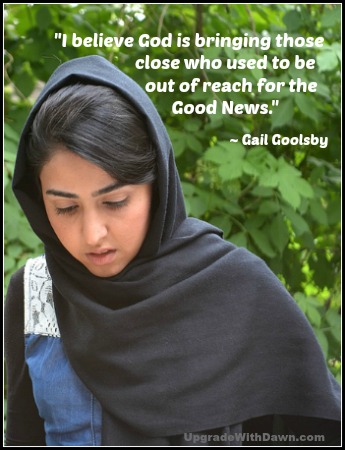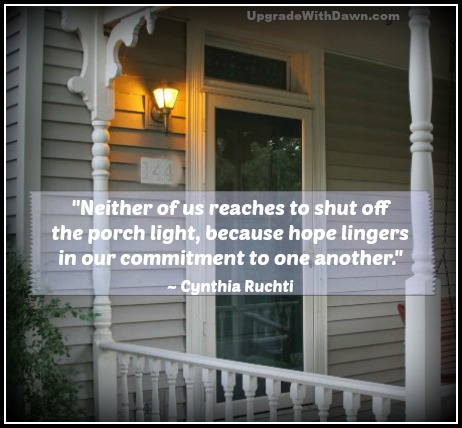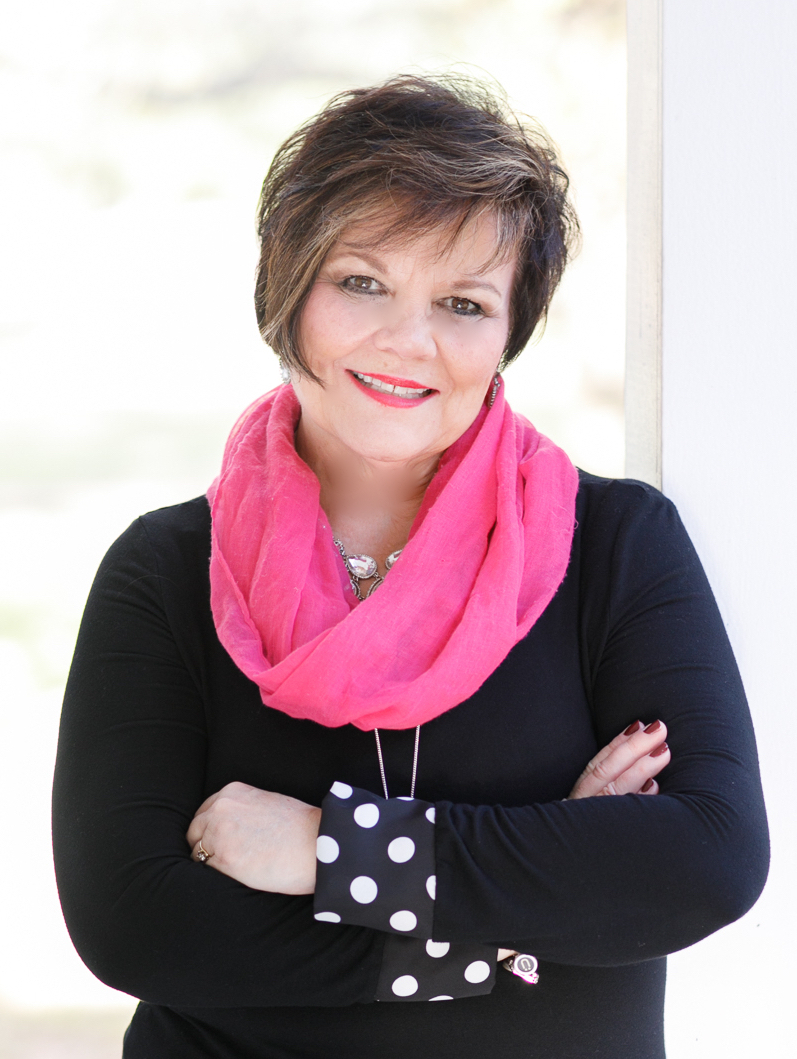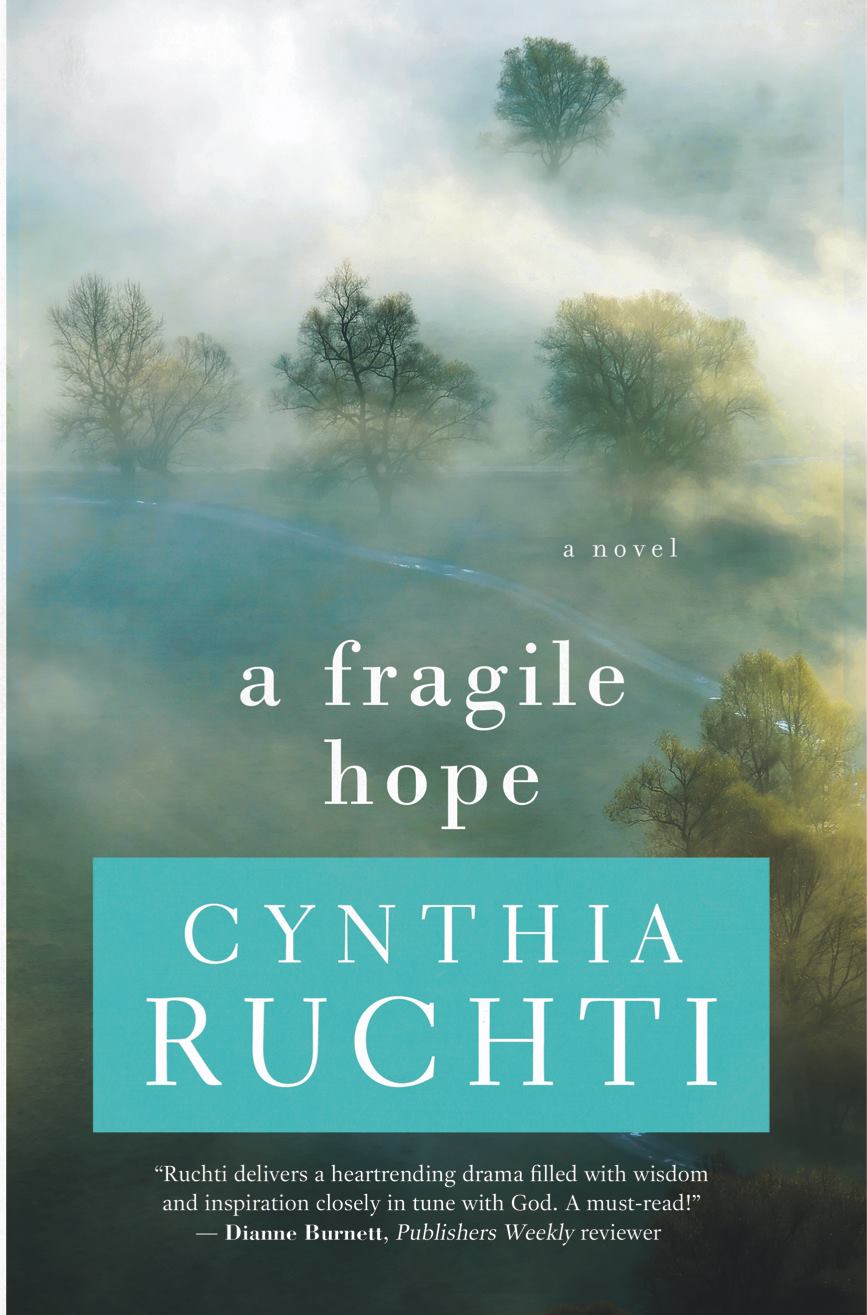Face-to-Face Friends Go Beyond Facebook
Leave it to counselor-coach Gail Goolsby to remind us to pursue real friends. In this Friendship UPGRADE, she encourages us to go beyond Facebook.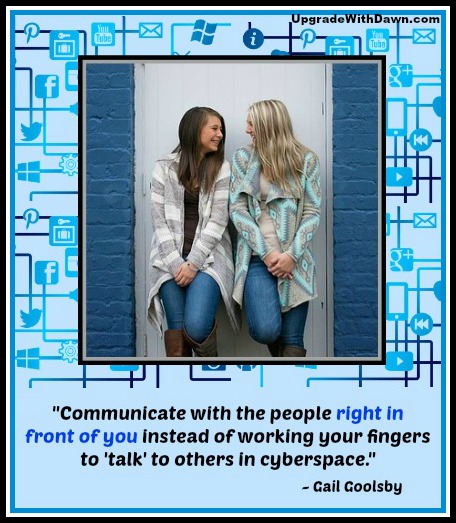
“As of January 2016, Facebook leads social network activity with approximately 1.6 billion regular monthly users,” Gail said. “The average Facebook user has about 340 friends, but are they real or fake friends?”
I (Dawn) think Gail is hitting on a great truth. How we define friends has truly changed in recent years. And with that redefinition comes some difficulties.
Gail continues…
In 2010, TV talk host Jimmy Kimmel proclaimed November 17th as National UnFriend Day.
For UTube, he created humorous videos to help his viewers determine who to dismiss from their overloaded friend list on Facebook.
He playfully demonstrated that:
- If people posted countless selfies/baby/pet/vacation photos,
- or if they complained about their health repeatedly,
- or sent online game invites too many times—
CLICK. They were unfriended.
Kimmel proposed social media users should reflect on what true friendship means, and how to be a better online friend with less people.
A Good Friend is Hard to Find
How do we develop real, meaningful relationships in short phrases, food and family pictures, and emoticons from a cell phone or a computer screen?
What do online friends actually contribute to our lives?
A dozen synonyms from the thesaurus for friendship include: affection, closeness, intimacy, love, understanding, alliance, attachment, company, empathy, familiarity, fondness, and regard.
Can we form a genuine attachment to people that we do not share physical presence with on a regular basis?
Can we read others’ theological debates, political rants, favorite Bible verses, daily updates and hope to become emotionally or spiritually connected?
Let’s review friendship examples and exhortations that come from Scripture and compare them to online friendship potential.
1. Job 2:11 (ESV)
Now when Job's three friends heard of all this evil that had come upon him, they came each from his own place, Eliphaz the Temanite, Bildad the Shuhite, and Zophar the Naamathite. They made an appointment together to come to show him sympathy and comfort him.
The three friends went to sit with Job in his troubles.
Are twenty postings of encouragement on a Facebook wall as powerful as a person in physical proximity to communicate support? I don’t think so.
2. Ecclesiastes 4:9-10 (ESV)
Two are better than one, because they have a good reward for their toil. For if they fall, one will lift up his fellow. But woe to him who is alone when he falls and has not another to lift him up!
Loneliness can be challenging as well as sad. Friends together can accomplish much and share the burden of moving, repairing, cleaning, planting, harvesting, and building.
Typed words alone will not get the tasks done.
3. Proverbs 27:6, 17 (ESV)
Faithful are the wounds of a friend; profuse are the kisses of an enemy. Iron sharpens iron, and one man sharpens another.
Online friends can be sincere or not—who would know? Compliments and likes are easy to provide with a few clicks of computer keys or adding cute faces and heart symbols.
To speak the hard truth to a friend that could really help her life situation requires a deep knowing and foundation of trust built over time and shared experiences.
People need facial expressions and eye contact to fully comprehend risky messages and to grow from the interactions.
4. Proverbs 18:24; 17:17 (ESV)
A man of many companions may come to ruin, but there is a friend who sticks closer than a brother. A friend loves at all times, and a brother is born for adversity.
How many friends should be gathered, or is quality more the question than quantity?
- Needed are the companions who stick around when cancer strikes, to tenderly hold up a friend’s weak body after chemo.
- When divorce erupts or a child dies, real friends offer more than comforting scripture memes.
- Friends provide meals for the family when the wife/mother cannot get out of bed as well as online prayers.
- People need to feel a hand on their shoulder or see an empathetic expression of sadness on their friend’s face sitting across the table, not just a teary emoji in a text box.
Face-to-Face Works Best!
Should we unfriend? Forget about spending time sorting your Facebook friend list this month. Close the laptop and get together with actual friends for some real-time activity.
Communicate with the people right in front of you instead of working your fingers to talk to others in cyberspace.
Be a live, human friend, present and engaged with the important people in your life.
Facebook can wait.
What friendships have been neglected or reduced to brief digital messages that need your personal attention and care?
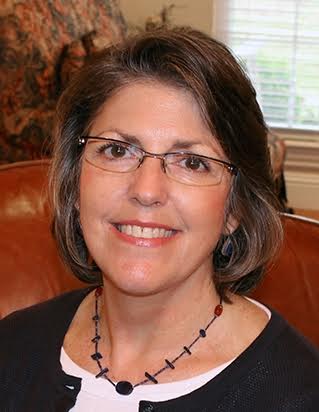 Gail Goolsby, MA, MEd, is a lifelong educator, including past leadership at an international school in Afghanistan. Gail and her pastor husband of 39 years live where the wind blows over the prairie in south Kansas. She counsels and coaches using God’s Word to help others learn to live well. Get to know more about Gail here.
Gail Goolsby, MA, MEd, is a lifelong educator, including past leadership at an international school in Afghanistan. Gail and her pastor husband of 39 years live where the wind blows over the prairie in south Kansas. She counsels and coaches using God’s Word to help others learn to live well. Get to know more about Gail here.
Graphics adapted, social media courtesy of geralt and Best Friends courtsy of cherylholt—both at Pixabay.
 1 Comment → Posted on
1 Comment → Posted on  Thursday, November 9, 2017 at 8:25AM
Thursday, November 9, 2017 at 8:25AM  Facebook,
Facebook,  Friends,
Friends,  Friendship,
Friendship,  Gail Goolsby,
Gail Goolsby,  Social Media,
Social Media,  Unfriending,
Unfriending,  Upgrade with Dawn Upgrade Your Life
Upgrade with Dawn Upgrade Your Life  Friendships,
Friendships,  Relationships
Relationships 




